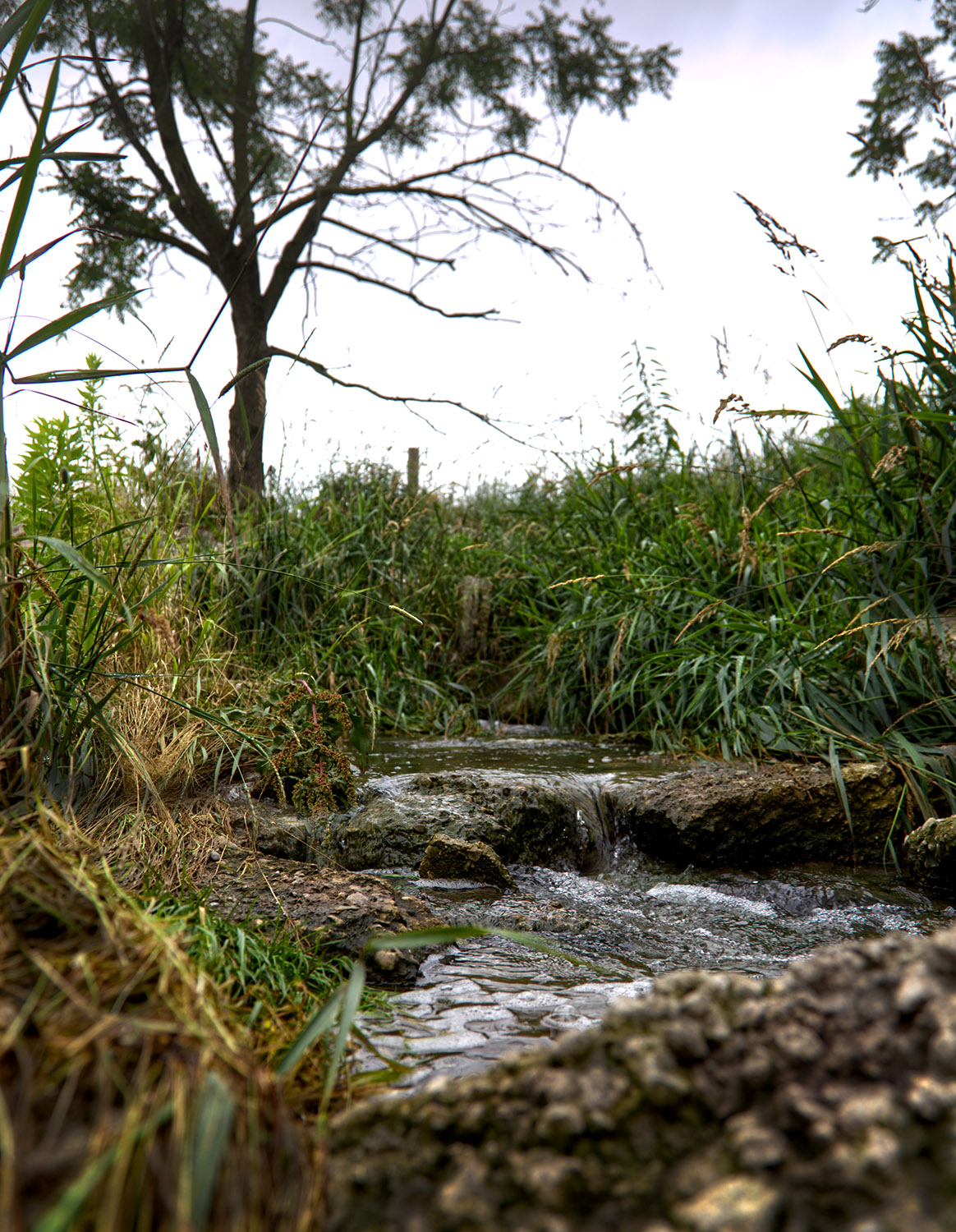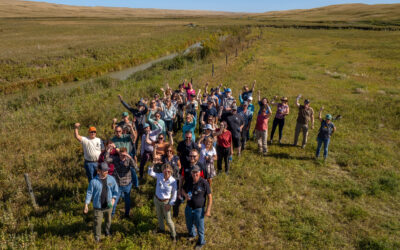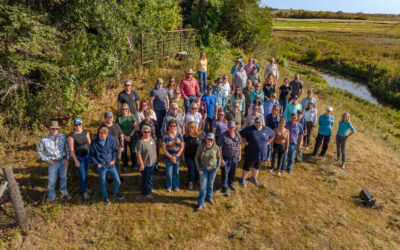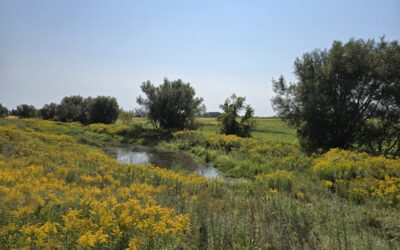Chris and Vivian Crump are always looking to make their farm work better, which led them on a journey to become environmental stewards.
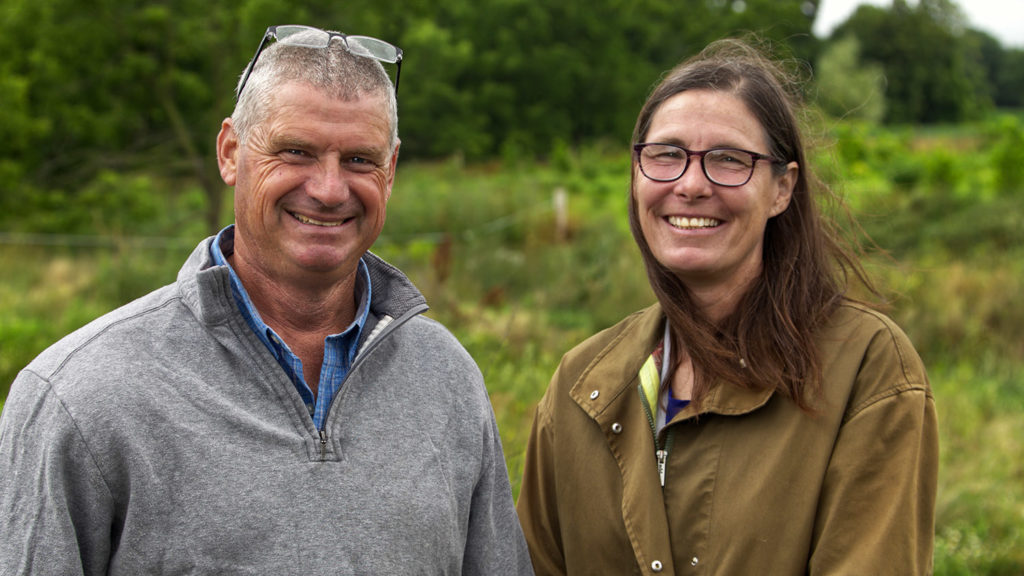
Chris and Vivian Crump. Photo: Huff Media
In 2000, when Chris and Vivian Crump began to raise cattle and farm the land in Ilderton, Ontario, it was a mucky mess; their farm is built on the side of a hill.
Both Chris and Vivian have always been and always wanted to be farmers.
“The focus has always been on farming. That was our main goal from day one,” said Chris. “When you’re farming, you always want to look at how to make the farm more profitable or how to sustain it.”
The Crump Family Farm is a 600-acre operation. The Crumps own 360 acres and rent the remainder, with 400 acres devoted to cash crop (wheat, corn and soy), 100 acres to hay and 100 acres for pasture. On their farm, they have a 50 head cow-calf operation with finishing barns.
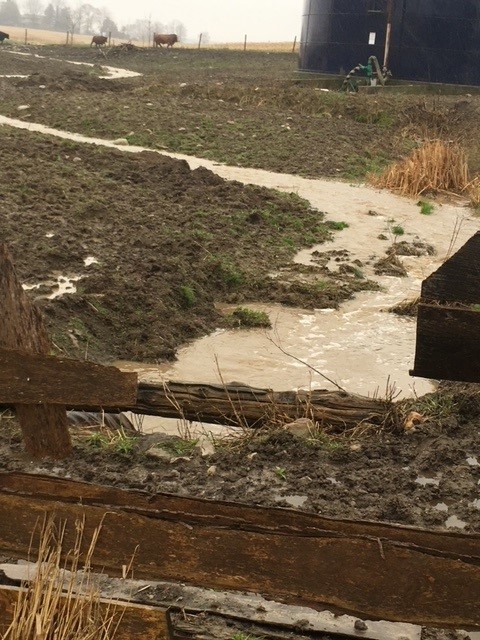
Rain water created a stream that swept manure and soil into the Sydenham River’s headwaters when the Crumps first started to work their land. Photo: Christopher Crump.
“When we got here, all the water seemed to run through the barns or around the barns,” said Chris. The manure that used to wash off the Crumps land went directly into the headwaters of the Syndenham River, the first open waters of which are just down slope from the Crumps’ barns.
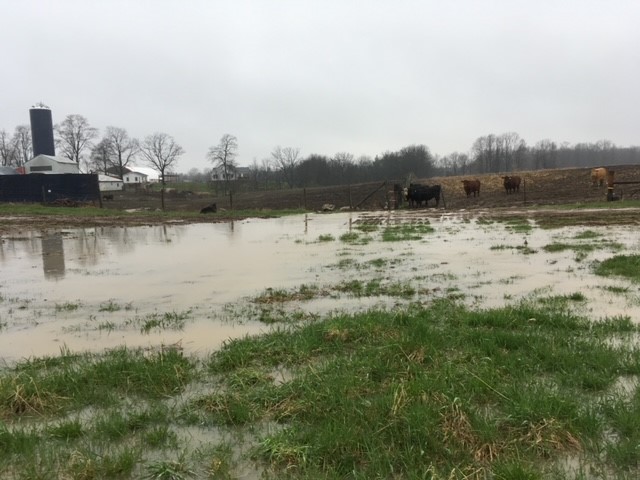
Rain water that didn’t flow, pooled and flooded, causing parcels of land to be a frustration to the Crumps and of little benefit to the environment. Photo: Christopher Crump.
To make their operation as effective as it could be, Chris and Vivian needed solutions to stop their topsoil washing away, improve the pastureland their cattle were on and keep manure from washing into the local watercourse.
“It wasn’t good,” said Chris. “So, we stopped it. We dug a pit just to hold the water running off the yards.”
That was the first step. For the second step, Chris and Vivian started looking for a permanent solution. In July 2019, they worked with ALUS, the St. Clair Region Conservation Authority and Ontario Soil and Crop Improvement Association (OSCIA) to fund the creation of a substantial habitat and stabilization project to settle the water on the land and improve their operation.
“We were looking for funding,” said Chris. “The project was $54,000. It was a lot of money to get that going for our one farm.”

The grassed waterway under construction. Photo: Christopher Crump.
As participants in the ALUS Middlesex program, Chris and Vivian were able to leverage partnerships and funding for this huge project, which allowed them to install a grassed waterway, a windbreak, a clean water diversion project and to reconstruct their largest water control pond to capture that manure runoff, all at no cost to themselves.
“Listen to the birds man; they’re back,” said Chris. “This was all open land before, now it’s a whole bunch of trees along the sides, all the crick banks are stabilized.”
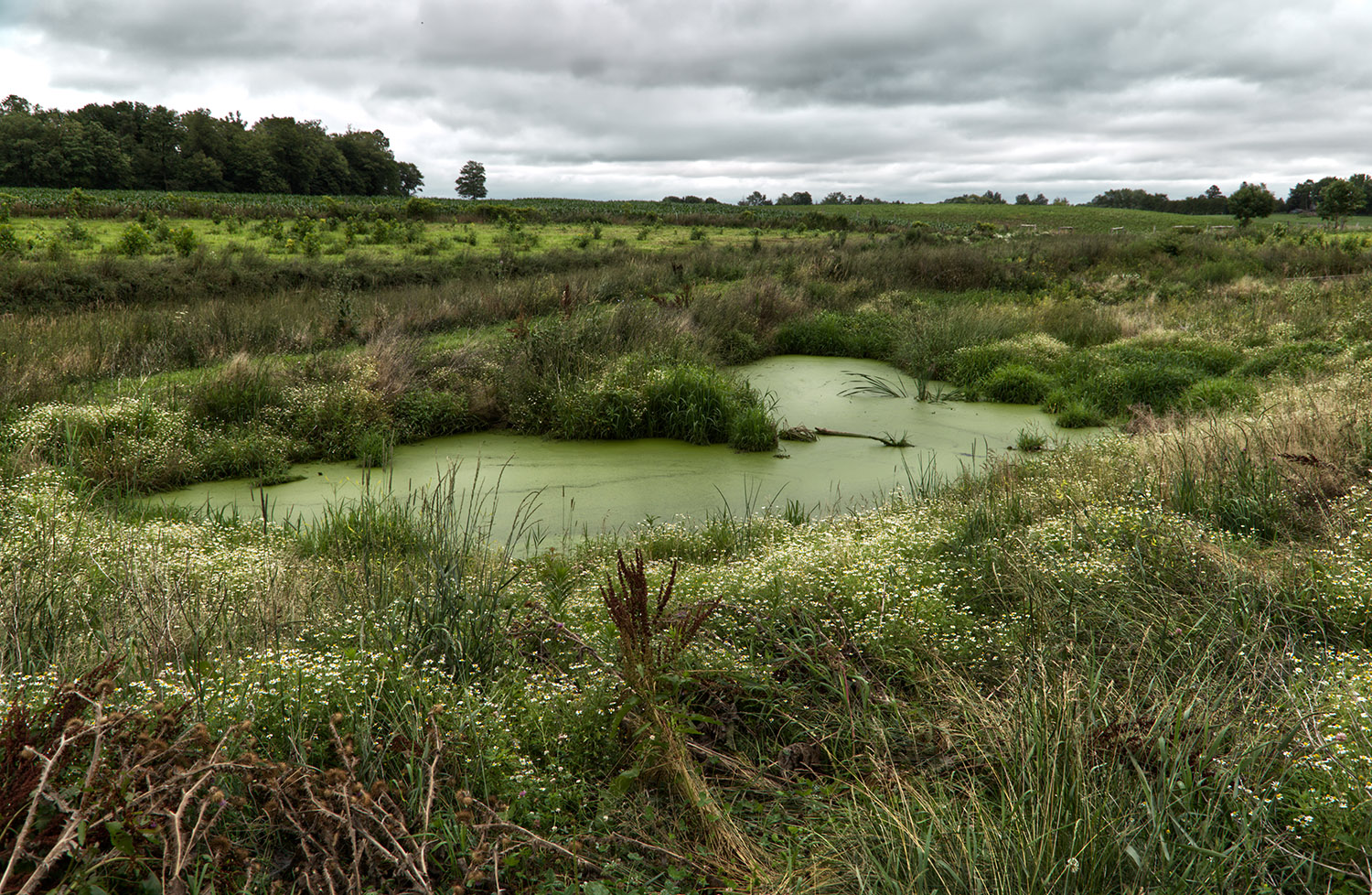
The final of three control ponds sends clear water into the headwaters of the Sydenham River. Behind the pond is the completed grassed waterway that keeps a river of muck from forming on the Crumps’ grazing land and overwhelming the waters downstream. Photo: Huff Media.
Their land looks half a nature preserve, but the Crumps’ farming operation is no less diverse or impeded by their efforts to bring nature to the land. Instead, it’s helped the farm work better.
Vivian runs the family’s farm market, Crump Family Farm, selling their beef, pork and grains. They have honey—twenty hives of bees—a neighbour that supplies maple syrup; and Vivian mills nine types of grains through the store. And she’s not stopping there.
The beauty of their landscape, the diversity of their products and a keen sense of connection to nature and her community has Vivian cooking up dreams of agri-tourism.
“I want people to come and see what farming is really about. I want them to see the cows, the pasture and how it’s in harmony with the river land, to hike through our land and see what grows here,” said Vivian.

Vivian mingles with cattle in the pasture. Photo: Huff Media.
Through their commitment to farming, Chris and Vivian have become stewards of the environment and have made their farm work better for them and for their community. And they are thankful to those who help to make their journey possible.
“It was a collaborative effort. We had to fix the land. And it worked out,” said Chris. “We’re doing it to the farm, because the farm is made better because of it, and if we can do it here, other people can do it, as well.”
